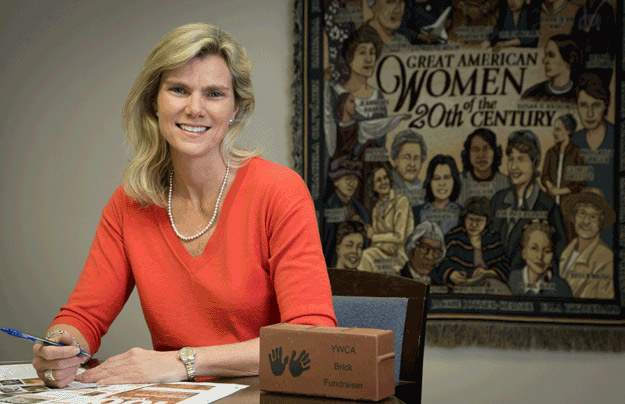YWCA’s 100 Years
Community race relations part of group’s history

It was a cold February day in 1960 when Barbara Jo Lineberger said no. She was a student at Guilford College when four African-American students from the Agricultural and Technical College of North Carolina sat down at a Greensboro whites-only lunch counter and refused to get up until they were served.
Over the course of several months, as winter thawed into spring, hundreds of people showed up and sat down in support. But not Barbara Jo.
“It was a great revelation to me. I had lived in a world where I didn’t pay attention. I had no idea that people of color could not go into any restaurant they wanted to eat a meal,” Lineberger says.
A few years later, she moved to Wilmington and began volunteering at the local YWCA. Back then it was called the Wilmington YWCA. Today it’s known as the YWCA Lower Cape Fear, but the mission has stayed the same: empowering women and girls and eliminating racism. It wasn’t long before Lineberger was offered the job of youth program director. This time, she said yes.
Everyone knows about the pool at the YWCA. Some people know about the affordable child care offered there. But many are unaware of the organization’s history of community outreach.


“The YWCA is so much more than what people think. We’re not affiliated to the YMCA. We never have been, and we never will. We’re a separate organization,” says Susan Fennell, executive director.
As plans are finalized for the YWCA’s centennial gala on May 3, Fennell is excited for the opportunity to share the group’s story.
“We encourage people to come and find out who we really are and what we’ve been doing,” she says.
The story starts on July 14, 1914, when the Wilmington YWCA opened its doors. Since then, the YW’s role in the community has evolved under the leadership of a line of dedicated women. From the hire of Wilmington’s first policewoman in 1919 to revolutionary biracial dialogue groups for community women in 1968 to the 1981 partnership with St. Paul’s Episcopal Church to form the Task Force Against Family Violence, the YW has mirrored the growth of the community, meeting needs as they arose.
“Every YWCA is different. We each function autonomously,” Fennell says. “Every YW evolves around its community’s needs. Here, we have a long history of talking about racism because of all the things that have happened in this particular community.”
Lineberger remembers the dialogue groups in 1968 and 1969. Racial violence in Wilmington peaked following delayed civil rights reforms, the assassination of Martin Luther King Jr., and the forced integration of schools.
It became clear the YW’s mission of empowerment wasn’t exclusively important for white women.
“We realized there’s no way that part of us could be more confident, more empowered, if we didn’t empower all people. It’s two sides of the same coin,” she says.
That’s why a group of women worked within the YWCA to assemble African-American women and white women into daily discussion groups.
“We wanted them to understand each other and how they all fit together to make a community that was open and supportive of all people,” Lineberger says.
That’s still at the heart of the YWCA today.
“Inclusiveness, making it work, saying yes – that’s what the YW is about,” Fennell says. “Especially as women, we don’t give ourselves enough credit for what we can do. The YW stretches us to reach our goals, even when we never thought we could. Then there’s no turning back.”
The women behind the scenes at the YWCA Lower Cape Fear are as inspired and empowered by their work as those who benefit from it.
At the very least, it gives Lineberger a sense of peace when she looks back at the naïve young woman who didn’t step up in Greensboro fifty-four years ago.
“Since I’ve been involved, I’ve regretted that I didn’t have the courage to be a support for those students,” she says. “The experiences I had with the YWCA and the opportunity it gave me to be a leader and encourage other people to be leaders – I don’t think I would have been that kind of person without the YWCA.”
To view more of photographer Mark Steelman’s work, go to www.marksteelmanphoto.com.